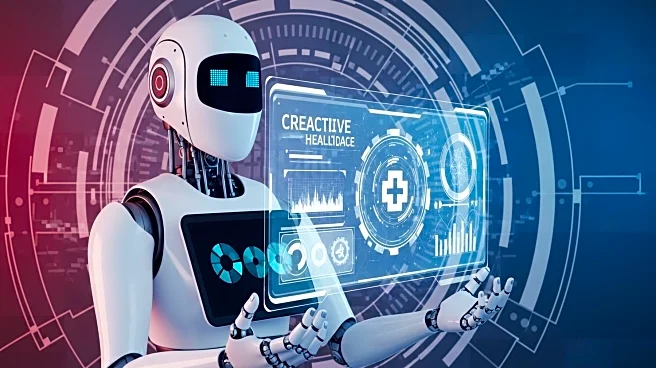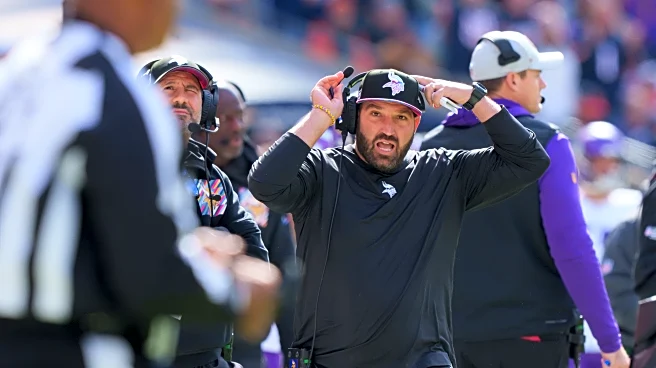What's Happening?
The healthcare marketing industry is undergoing a transformation, driven by the need to engage younger audiences who are increasingly disconnected from traditional media. The shift is towards utilizing modern technologies such as artificial intelligence (AI), augmented reality (AR), and digital humans in advertising campaigns. These innovative formats aim to create captivating stories that resonate with younger demographics, who are more attuned to interactive and relatable content. The industry is moving away from outdated workflows and generic messaging, which have failed to capture the attention of younger generations. This change is essential as the traditional TV advertising market is expected to decline, necessitating new strategies to maintain engagement.
Why It's Important?
This shift in healthcare marketing is significant as it addresses the evolving media consumption habits of younger audiences. By adopting AI and creative technologies, healthcare marketers can create more engaging and personalized content, potentially increasing their reach and effectiveness. This transformation is crucial for the industry to remain relevant and competitive, as younger generations are less likely to engage with traditional advertising methods. The move towards innovative marketing strategies also reflects broader trends in media consumption, where platforms like TikTok are influencing expectations for advertising content. Companies that successfully adapt to these changes may gain a competitive edge in attracting and retaining younger consumers.
What's Next?
Healthcare marketers are expected to continue exploring and integrating new technologies into their campaigns. This may involve establishing research and development functions within marketing teams to identify and implement cutting-edge tools. As the industry adapts, there will likely be a focus on creating content that is interactive, relatable, and inclusive, aligning with the preferences of younger audiences. Companies that embrace these changes may see improved engagement and brand loyalty. Additionally, there may be increased collaboration between creative agencies and healthcare companies to develop innovative marketing strategies that effectively leverage AI and other technologies.
Beyond the Headlines
The adoption of AI and creative technologies in healthcare marketing raises ethical considerations, particularly regarding patient confidentiality and data privacy. As digital humans and AI-driven content become more prevalent, marketers must ensure that these technologies are used responsibly and transparently. Furthermore, the shift towards more interactive and personalized content may influence broader cultural perceptions of healthcare, potentially fostering greater awareness and understanding of medical conditions. This transformation also highlights the importance of diversity and inclusion in marketing, as companies strive to create content that resonates with a wide range of audiences.











